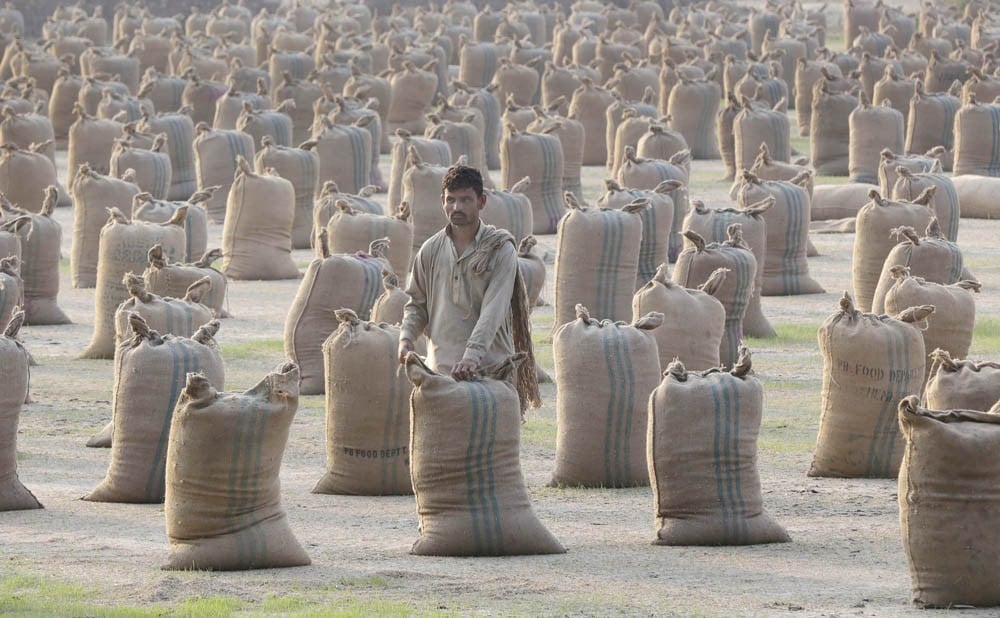
Does the government’s Agriculture and Food Security Policy draft cover all aspects of food security?

The government’s policy draft of agriculture and food security policy has been in the news for some time now as it is being discussed by various stakeholders before it is presented in the National Assembly.
The Ministry of National Food Security and Research (MNFSR) was created in October, 2011 to address the issues of food security. The MNFSR organised a National Food Security Conference in March 2012.
In the light of the recommendations of the National Food Security Conference, Standing Committee of the National Assembly on Food Security and Research constituted a committee in December 2012 to prepare a draft of the National Food and Nutrition Security Policy.
The draft of policy prepared by the ministry in 2013 says, "The proposed agriculture and food security policy sets out a vision and goal for agriculture and food security, along with a set of policy directions." It claims that "This would help the provinces that have, after the 18th Amendment, overall responsibility for agriculture and rural development, to articulate their own polices and strategies."
Commenting on the provinces’ role, the policy further says, "In order to guide their activities and investments in agriculture, some provinces have started work on preparation of provincial polices, strategies and investment plans. However, provinces still need an overall national vision and direction for agricultural development to ensure that synergies are maximised and overlaps are minimised."
The draft prepared under the guidance of experts from the Ministry of National Food Security and Research, the Pakistan Agriculture Research Council and the National Agriculture Research Centre, and supported by the Food and Agriculture Organization (FAO), aims to reduce poverty by 50 per cent by 2030 and bring down poverty and food insecurity to zero level till 2050.
But is the policy draft completely alive to the issues of food security in Pakistan and what should be the policy of the government? In The Pakistan Development Review, published by Pakistan Institute of Development Economics (PIDE) in 2010 titled, The State of Food Security in Pakistan: Future Challenges and Coping Strategies Munir Ahmad and Umar Farooq say, "There are two major policy failures that lead to uncertainty in food security and increase in poverty in the developing countries, including Pakistan. These policy failures include hasty withdrawal of state from the agriculture sector under the structural adjustment programmes and paying no attention to setting up essential institutional infrastructure."
The writers further say, "This resulted into reduced investment in research and development not only by the national governments of the developing countries but international donor agencies also withdrew their support."
They advise that "Research policies have to be focused on cropping zones and their development to increase profitability. No egalitarian approach of one-size-fits-all shall apply. Basic and applied research, including social sciences has to be focused on cropping systems/zones, since the zones are heterogeneous in socioeconomic, resource endowments and agronomic characteristics and the issues/problems differ significantly from each other."
In SDPI’s policy review, "State of Food Security in Pakistan and Policy Options", Shakeel Ahmad Ramay believes the policy comprehensively summarises "the agriculture status and presented different options for the development of agriculture sector." But he also points out that the policy draft, with its two components, i.e. agriculture and food security, is silent on many issues related to food security; rather its primary focus is on agriculture development."
But the government says the draft has not been finalised yet to bring in the suggested changes. Talking to TNS, Rajab Ali Khan Baloch, Parliamentary Secretary, Ministry of National Food Security and Research, makes it clear that "the policy draft being discussed at various levels is the agriculture policy, and Food Security and Nutrition Policy is one of its components and it is not all about food security."
Baloch does not agree with the assessment that the implementation of the policy has been delayed. He informs, "The policy document has been posted on our website for all the stakeholders to see and give their feedback. We have also held seminars and workshops to make it a comprehensive policy because it is going to be a lifetime policy. After that is done, the policy document will be presented in the National Assembly to be passed."
He separates the issues of food security policy and the famine in Thar. "The deaths in Thar were not due to an absence of a national policy or lack of food. The tragedy was a provincial issue. There were multiple factors of what happened, including bad governance, health issues, water scarcity, etc. Ironically, there were abundant stocks of wheat with the provincial government in Sindh at the time of the crisis," he says.